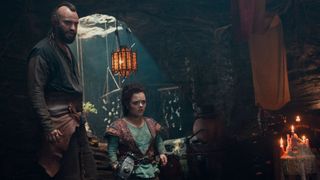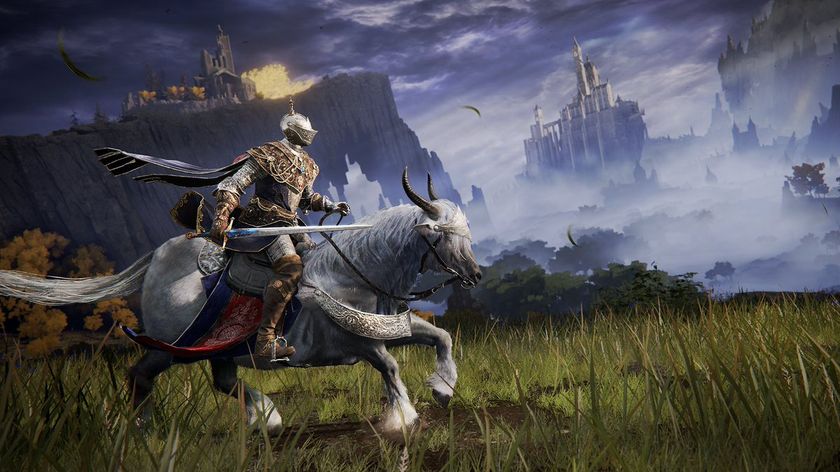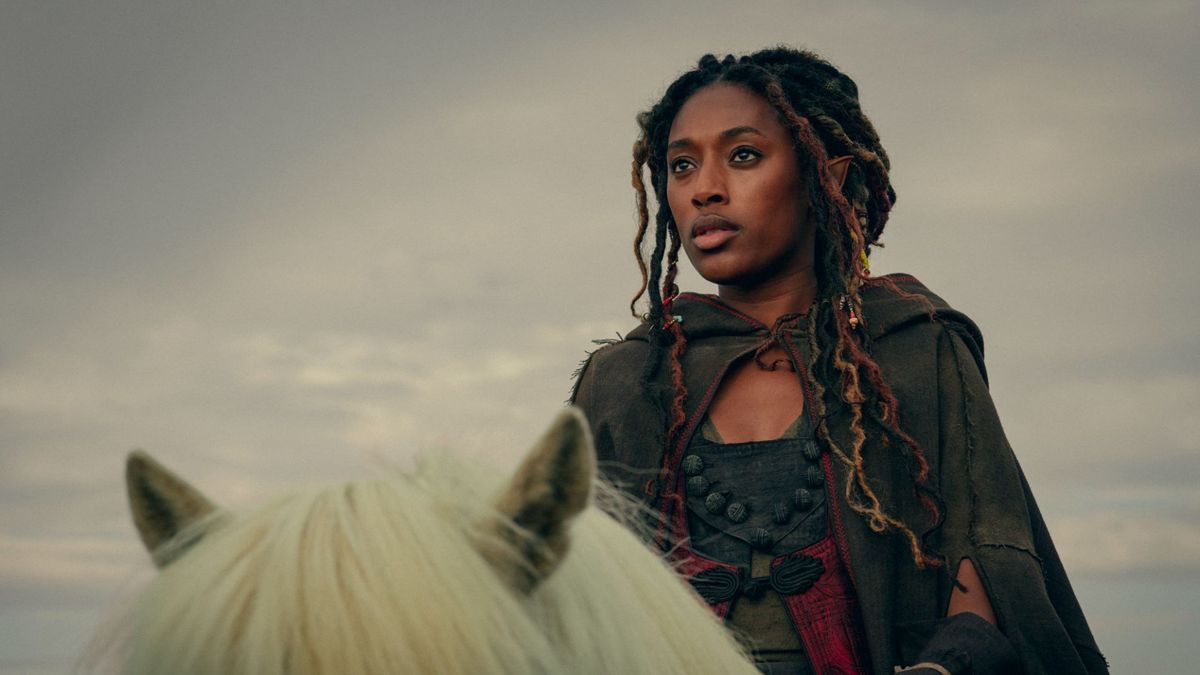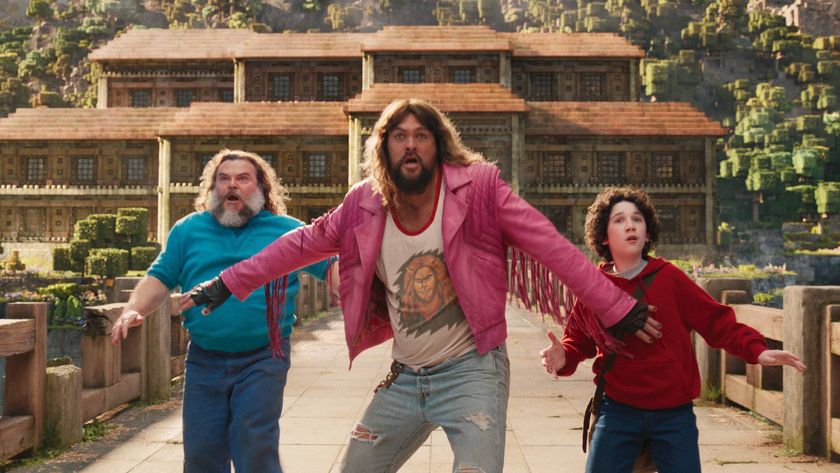12DOVE Verdict
The Witcher prequel is a rote fantasy journey that rarely excites. Even when it does, Blood Origin’s Story of the Seven remains burdened with pacing issues and a dull plot that does little to flesh out the world of the series.
Why you can trust 12DOVE
It’s never a good sign when a show’s best moments arrive in the first few minutes. But so it proves with The Witcher: Blood Origin, a spin-off to Netflix’s flagship fantasy series set 1,200 years before the stories of Geralt, Yen, and Ciri.
In a brilliant scene that’s best left for you to discover yourself, Joey Batey’s Jaskier is pulled in from the main series. The prologue is everything the tale that comes after isn’t: mysterious, faintly anarchic, and anchored by a character in Jaskier that is overflowing with magnetism and charisma – something which Blood Origin is desperately crying out for.
What follows is a flat limited series that will have you questioning its very existence – including how it enhances The Witcher’s universe. Set before the cataclysmic Conjunction of the Spheres that sees worlds combine to form The Continent, a group of seven adventurers embark on a fateful quest. All the while, in Xin’trea and Pryshia, a pair of warring kingdoms undergoing a serious paradigm shift, and the creation of the very first witcher begins.
Leading those seven is Éile (Sophia Brown), an elf shunned by her clan for favoring music over fighting. She is one of Blood Origin’s few bright spots, offering genuine warmth, a rollicking first impression in a bar brawl, and brutal scenes that harken back to Geralt’s duel with Renfri in The Witcher’s premiere. She even finds time to serenade audiences, though her songs don’t quite match the ‘Toss A Coin’ earworm from Jaskier’s lips.

The rest of the main cast of characters, however, range from woefully undercooked to serious missed opportunities. Fjall (Laurence O’Fuarain) is a gruff warrior that never rises above his seen-it-all-before archetype, while Brother Death (Huw Novelli), and mages Zacare (Lizzie Annis) and Syndril (Zach Wyatt) offer little more than background noise. Worse still is how Michelle Yeoh’s Scian is treated. Fresh off a career-best performance in Everything Everywhere All at Once, the nomadic elf is criminally underutilized and Yeoh’s one major fight scene is disappointingly clunky and stiff. At least the final member of the Seven, the dwarf Meldof (Francesca Mills), jolts the series into life whenever she appears. Her quiet musings to her hammer – named Gwen, naturally – are among Blood Origin’s best moments and are dripping with affection and personality.
When the ensemble eventually has the opportunity to bounce off one another, there’s a hint of something magical in the air. But whenever Blood Origin threatens to build any momentum, its legs are hacked off by cutting to an interminably dull storyline involving Princess Merwyn (Mirren Mack). The plodding plot sees the royal puppeteered by Chief Sage Balor (Lenny Henry) and Eredin (Jacob Collins-Levy), who each harbor their own secrets and nefarious motives. Even Henry’s wonderfully camp pantomime villain serves to remind you that the far superior Rings of Power, which the actor also appeared in, exists.
The back-and-forth between the two stories is wrapped in a structure that has clearly been butchered in the editing booth. Blood Origin’s very public change from six episodes to four is written all over its rushed story. One character’s arc, for example, is laughably sped through: they’re a royal bodyguard, exiled, and then asked to return – all within the first 20 minutes.
That fast-forward approach means the show’s worst plot device, its narrator, has to stitch together the story. Clumsy and exposition-heavy voiceovers, instead of character work and rich dialogue, fill in the gaps between a patchwork collection of scenes. As a result, declarations of love, blood oaths, and betrayals become unearned as the series refuses to settle and instead races through plot points before reaching its final act.

There are some glimpses of quality that do shine through on occasion, even if they are fleeting. Blood Origin’s scarier elements introduce a more macabre visual language on a journey otherwise punctuated by lifeless hills and janky CGI. The franchise has always been at its best when embracing its harder horror edge – see The Witcher season 2’s adaptation of The Last Wish – and so it proves again here.
Blood Origin’s representation should also be commended. Too often, the fantasy genre plays it safe with its casting. Among several actors of color, Blood Origin features well-rounded and fleshed-out roles for Deaf actors and those with dwarfism. In a series devoid of any real experimentation or bravery, this (rightfully) stands out as a creative choice well done.
In a year filled with great fantasy – House of the Dragon and The Rings of Power among them – this ultimately ranks near the bottom. A pre-Witcher exploration of the mutant species’ genesis and the story of how the worlds of monsters and men collide should have enriched the main series and thrilled in its own right. This does neither. A few solitary sparks aside, Blood Origin is packed with wasted potential and wasted talent in its short four-episode run. Let’s hope our next trip back to The Continent for Henry Cavill’s Geralt swan song helps boost what is fast becoming a franchise on unstable footing.
The Witcher: Blood Origin is streaming on Netflix from December 25.
More info
| Genre | Fantasy |
I'm the Senior Entertainment Writer here at 12DOVE, focusing on news, features, and interviews with some of the biggest names in film and TV. On-site, you'll find me marveling at Marvel and providing analysis and room temperature takes on the newest films, Star Wars and, of course, anime. Outside of GR, I love getting lost in a good 100-hour JRPG, Warzone, and kicking back on the (virtual) field with Football Manager. My work has also been featured in OPM, FourFourTwo, and Game Revolution.

Nintendo says the Switch 2 "isn't simply an improved Nintendo Switch, we redesigned the system from the ground up," and after 8 years, I'd sure hope so

Japan's "multi-language" Switch 2 costs 20,000 more yen, or $130 more dollars, than the Japanese-only version

Elden Ring is getting a fancy new name on Switch, new weapons and armor, and new horse clothes on all platforms











